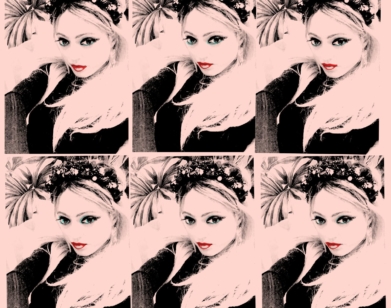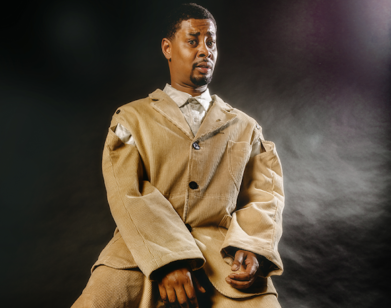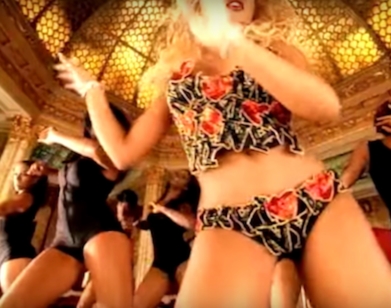How Sophia Chang Became the Baddest Bitch in the Room
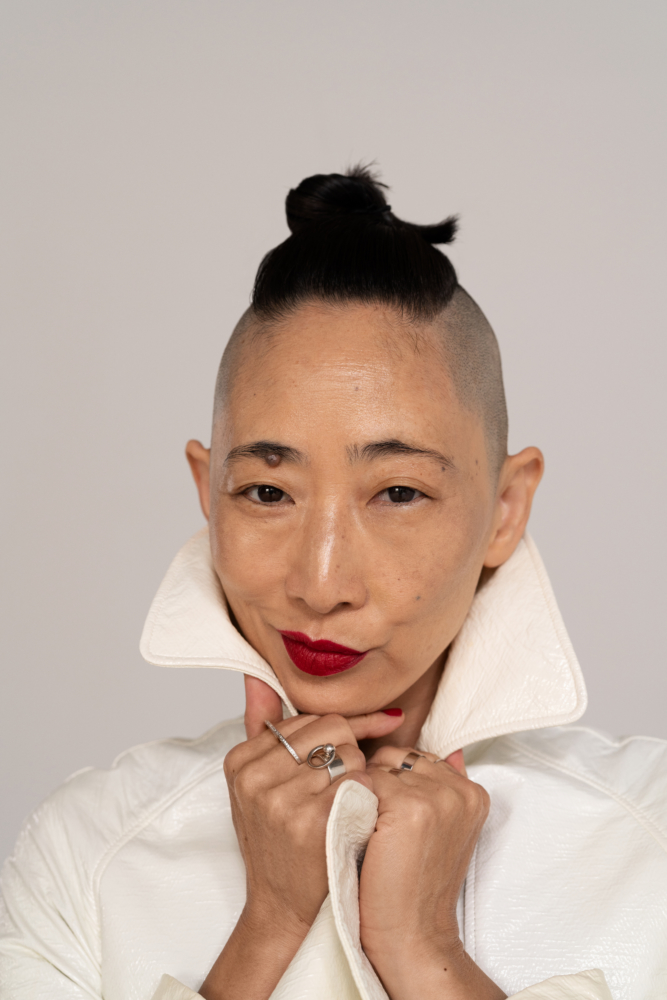
Photo by Dana Scruggs.
A veteran of the music industry, most notably as the former manager of RZA, GZA, Ol’ Dirty Bastard, A Tribe Called Quest, D’Angelo, Raphael Saadiq, and Q-Tip (to name a few), Sophia Chang wears many hats, and not just her trademark Gucci leather fedora: NYC hip-hop royalty, managerial superwoman, Kung Fu expert, French literature scholar, first-gen Korean-Canadian industry trailblazer, mother, mentor, and most recently, author.
Born in Vancouver to Korean immigrants, refugees who lived through two wars, Chang is by no means the face you’d expect to see so intimately involved in shaping the Golden Era of East Coast hip-hop, but she can take credit for introducing the world to some of the most influential voices in the industry. Shortly after skipping her university graduation to move to New York City, Chang landed a coveted gig assisting Paul Simon through an unexpected new friend: Joey Ramone. In the years following, her grit and natural talent powered her up the ultra-insular Boys’ Club of record label management, first managing A&R at Jive and UMG, and eventually serving as general manager of Razor Sharp Records, Cinematic Music Group, and Pro Era Records. Chang is a self-dubbed “music business matriarchitect” with the CV to prove it, and after dedicating her career to helping others spin their life stories, she’s finally sharing her own.
Chang’s new Audible memoir, The Baddest Bitch In The Room, is conversational in tone and at times blisteringly intimate. She weaves music and voice-overs by friends and family throughout her narration, bringing her legendary stories to vivid, uninhibited reality. (I mean, who gets knocked up by a Shaolin monk? Twice?) Her narrative will sound uncannily—and satisfyingly—familiar to any child of immigrants, a refreshing “fuck you” to the tired model-minority trope, and an empowering one at that.
When Sophia and I talked on the phone, we got too wrapped up in musing about our loving-if-not-anal-retentive mothers to get to the music or the LES parties, but all that’s in the memoir. We did, however, chat about “growing up Asian” in North America, breaking stereotypes in entertainment, and most importantly, how to be the baddest bitch in the room.
———
CECILY LO: I was really happy that you started [the memoir] with stories about your parents. Maybe it’s the “good Asian girl” in me, but I can’t help but think, for better or for worse, that we are a product of our family lines and histories, and their physical sacrifice. You talk a lot about the sacrifice of your parents, and that leading to your unquestioning self-sacrifice for your own children. Are there other ways that you see your parents’ parenting come out now that you’re a mother?
SOPHIA CHANG: One of the beautiful gifts of a memoir is that it’s a process of self-discovery, but also of all those around you. I realized that my parents were remarkably progressive, and they never pressured me. They never said, “When are you gonna get a real job? When are you gonna get married? When are you gonna give us grandchildren?” Other than my mother suggesting a couple of times that I come back to Vancouver and get an MBA, I never got that kind of pressure. And I just recently learned, like a month ago, that my grandmother and all of my parents’ friends said to my parents, “You’re crazy for giving Sophia so much freedom ’cause she’s kind of lost her mind. You need to rein her back in.” They never, ever shared that with me, and so I never felt that pressure. They never said, “You’ve got to get straight As … You’ve got to go to this school or that school,” and I think that that has translated into how I raise my children.
I’m a perfectionist at heart. And my daughter takes after me, she’s also a perfectionist. But what I said to my daughter from a very young age was—I didn’t use this language, but I use it now—”Fuck perfection.” We’re humans. I don’t even want you to strive for perfection. The only thing that I ask of you is that you do your best. I told her, “I don’t give a shit about your grades. What I care about is that you are a good person.” I think that I passed on to my children my parents being very fair and just people. My father, God rest his soul, was always so judicious. And also: Never throw away leftovers. If you don’t want to eat them, you have to leave them on the street. Because in New York City somebody will pick it up within three minutes. You can’t waste food.
The other thing, and I’m sure you can relate to this, is that my daughter knows how to clean a kitchen. [Laughs.]
LO: I could relate to everything. My parents just helped me to move into a new apartment, and my mom brought like, armfuls of plastic grocery bags. “You’ll need these for your trash.” And I am using them for my trash.
CHANG: Has your mother ever bought a garbage bag?
LO: No.
CHANG: Yeah, exactly. You go to a white friend’s house, and you’re like, “Wait, what is that?” I reuse my Ziplocs. Like, I will wash and reuse my Ziplocs.
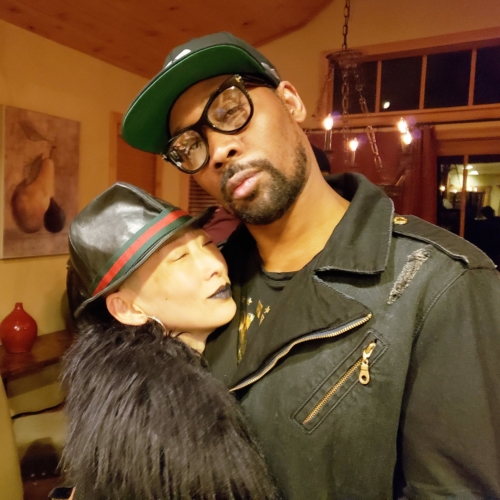
Chang with RZA at Sundance for the premiere of the Showtime docuseries Wu-Tang Clan: Of Mics and Men.
LO: Probably what you’re most well known for is being the former manager of RZA, GZA, etc., but I was impressed by how your life is so much more than that. I mean this in the best way—the music is hardly the most interesting thing about you.
CHANG: One of the lessons that I hope to teach is to be more fearless. What I demonstrate is that I was never really afraid. Now, of course, I have a middle class safety net, so it’s not like jumping from one job to the other was ever going to leave me or my children homeless or destitute. So I definitely walk with that privilege, but within that privilege, I would just say, “Hey, you know what? Production at a digital agency? I’ve never done that before, but okay, let’s just give it a try.” This is of course tied into my confidence. I knew that if it didn’t work out that there was something else beyond—whether it was something that I was familiar with or not.
I’m also a very curious person. I wish people could be more intrepid, particularly people like you and I. The great sacrifice that our parents go through—they leave their family, home, language, culture, cuisine, community, everything—to come to another country, and typically they really do it for their children. So when their children turn around and say, “I wanna be a sculptor,” I understand why they wouldn’t be jumping up and down. They’re more like, “Oh, hold on, hold on, hold on. We didn’t come 5000 miles for you to tell us that you wanted to do macrame, and, you know, work at a farmer’s market doing that.” That’s just not how we’re wired culturally.
LO: I remember growing up thinking, “Oh yeah, it’d be great to be a pop star, or a movie star, or an artist…” But I didn’t think that was in the realm of possibility.
CHANG: Exactly. Doctor, lawyer, engineer.
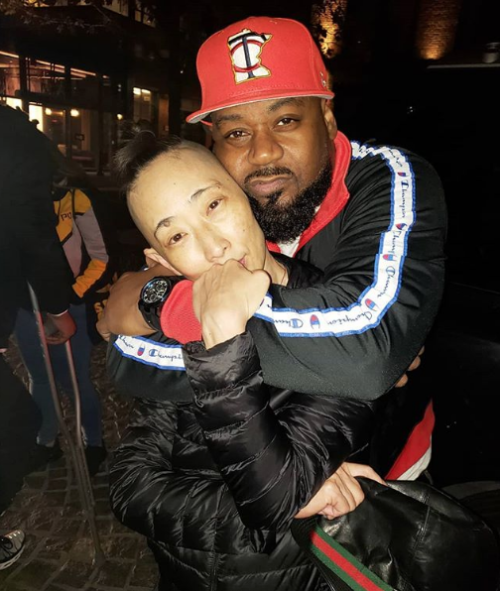
Chang with Ghostface Killah, her lifelong client and friend.
LO: In this day and age, seeing more—slightly more—Asian faces on screen and in more prominent roles, I’m like, “Hey, maybe I’m in charge of my own reality.” Do you know what I mean? It’s not like a predestined thing.
CHANG: Yeah. My hope is that is what my memoir will achieve. Number one is to crack open the world’s imagination of what you and I could be because the world’s imagination about what you and I can be is very narrow—frankly, as is our parent’s generation. I just want people to say, “Oh, okay. So an Asian-Canadian, or an Asian-American woman, could be something that I had never imagined.” And that, I think, is the most important impact that I can have in terms of our people.
LO: You mentioned that these days you’ve been leaning more into public speaking and mentorship?
CHANG: Yeah, the public speaking is definitely what I was put on this planet to do.
LO: What have you learned from it?
CHANG: I spent my whole career, which is 30 years, helping extraordinarily talented men tell their stories. And there really is nobody better at it. I’m certain of that. I was never the richest, the most powerful, the most visible manager with the biggest clients. I was never that person, but I honestly believe there’s nobody better than Sophia Chang at helping somebody tell their story.
It took until I was 50 to understand that it was time to tell my story. What I learned at 50 was, “Oh shit, Sophia, your story is kind of interesting. Yeah, you should tell your story.” And I think that the bigger lesson in that for me is, we need to be uplifting the voices of the marginalized and building a tradition of storytelling that doesn’t just focus on whiteness. It is a profoundly important exercise, for the world, but also for me, to claim my own story as being one worthy of telling. Remember, I started working with Paul Simon in 1987. I’ve been working with famous people for 32 years. I am acutely aware of the price that people pay for being famous. And I chose consciously to abdicate my anonymity. I never wanted to be famous. I never wanted to be rich. I’m about to be both of those things before this year is out, and I am not interested in fame. The only reason I’m willing to sacrifice my anonymity is that I know that in stepping into the spotlight and sharing my story publicly, I can help others. I don’t want it for myself at all.
LO: I don’t know if you intended for it to be read this way but, to me it felt like the most effective self-help book I’ve ever picked up off the shelf. It energized me.
CHANG: Wow. Really? Thank you so much. The book was firstly conceived as a Lean In for women of color, and then it turned into—through the hands of my very skillful editors—a pretty standard, chronological memoir. But I always said that my memoir was a prescriptive one. And a prescriptive one in, I’m hoping, the most organic way. In other words, this is not a self-help book where I say, “Listen, you wake up every morning, you brush your teeth, and you look in the mirror and you say, ‘I can do it. I can do it. I’m the little…'” I have no interest in writing that book. But what I understood was that to be an effective story-teller, it wouldn’t just be, “Then in 1979… and then in 1983…” It would actually be a story from which people could glean lessons—whether about the mistakes I made or the triumphs that I enjoyed.
https://www.instagram.com/p/Bw7B99xFu-C/
LO: What makes someone a bad bitch? And what makes you the baddest bitch in the room?
CHANG: The baddest bitch in the room—there are many of us, so it’s not like there can only be one. When I was at the Second Annual Black Girls Rock Awards, I was with three women of color—all black women, all over 40, and just brilliant and beautiful—and I thought, “Wow, no matter where we go, my bitches are the baddest bitches in the room.” That was really my inspiration. And yes, I am one of those, so it can sound obnoxious. And it might sound competitive, but that’s really not what it’s about. It’s not about me saying “I’m better than you.” It’s not like, “Oh my God, she’s the most beautiful woman in this room.” Look, that’s interesting, I mean, that can make you stand out, but that doesn’t make you interesting to me.
It’s about me saying to myself, “I am the baddest bitch in the room because I have done an inventory, because I have sat here and thought about all the things that make me great. And there are many.” Everybody’s list is unique. It could be that somebody is a superb athlete or a superb cook or a phenomenal mother. There are myriad ways that we can be the baddest bitch in the room. But what is important to me, is that, number one, you take that inventory, and you make the list and you say, “These are the things that make me amazing.” And I hope that everybody, every woman that listens to my memoir, does this. You make this list, because once you start writing, you’re like, “Oh shoot, there’s more.”


